Iowa Space Grant Consortium
Higher Ed Iowa-Wide: ISU

This Higher Education Program has two projects at ISU.
Project 1 Title: Spaceflight Operations Workshop, Expedition 4
Background: Space Flight Operations is a week-long program for undergraduate students that targets enhancement of student operational thinking capability, with an intended outcome of increased competitiveness for employment opportunities in government and commercial industries. Program content was derived from NASA training experiences completed by Clayton Anderson during his years at NASAs Johnson Space Center as a United States Astronaut. Lessons were selected based on ease of implementation, instructor availability and expertise, cost, and corresponding benefits. The objective was to maximize operational education impact while minimizing costs whenever possible.
The workshop structure focused on three key aspects of spaceflight operations:
1. Operational knowledge and experiences
2. Implementation of available tools (rather than tool development)
3. Application of tools and knowledge to problem solving
The participants are challenged through six major activities, scuba diving, skydiving, wilderness survival, emergency procedure operations (using virtual reality), aircraft flight simulator training, and classroom learning. The classroom activities supplement the hands-on activities with guest speakers in conjunction with ISGC affiliates for STEAM. These are excellent variants that give the students experiences and skills they would not be able to get in a typical classroom engineering lecture.
The speakers included Dr. J.D. Polk, Chief Medical Officer for the National Aeronautics and Space Administration; Dr. Thomas Schnell, Professor of Mechanical and Industrial Engineering at the University of Iowa; Craig Cruzen and Dennis Morris, Payload Operations Directors at the Marshall Space Flight Center. The workshop also featured a crew member from University of Iowa who was a preservice educator.
Goals and Objectives
The workshop is structured around the following high-level areas to expose and educate (new target participants) pre-education and engineering students in the concept of operational thinking with subsequent application to solving problems related to spaceflight and human factors as well as implementations of STEAM educational concepts. These concepts include:
* Working efficiently as members of high performing teams (crews) supporting task (mission) operations
* Learning/assimilating information effectively in shortened periods of time within the bounds of rigorous and varying schedules
* Developing high-level understanding of training and operations methods used by NASA in the training of astronauts (assumed to be similar to those that will be used in the commercial spaceflight industry and may be adaptable/applicable to other industries benefiting from operational thinking).
* Hands-on problem solving as it relates to actual spaceflight mission operations.
Project 2 Title: This Higher Education Program has two projects at ISU.
The project propose is to teach engineering students professional development skills in a new and innovative way. The method that utilizes virtual and augmented reality systems to teach these skills to students in an interactive and fun environment.
The objective for this project was to develop materials and equipment that can be used to teach students professional development skills. Specifically, focused on the skills teamwork, leadership, communication and ethics. The following list are the key objectives for this project.
-Develop professional development activities for engineering students using virtual reality and augmented reality to increase their preparation into the workforce
-Develop an interactive game students will interface with through the learning process
-Develop teaching materials (lesson plans, activities and assessments) faculty can use to teach these skills
-Develop a portable system that can be used at different institutes in Iowa

